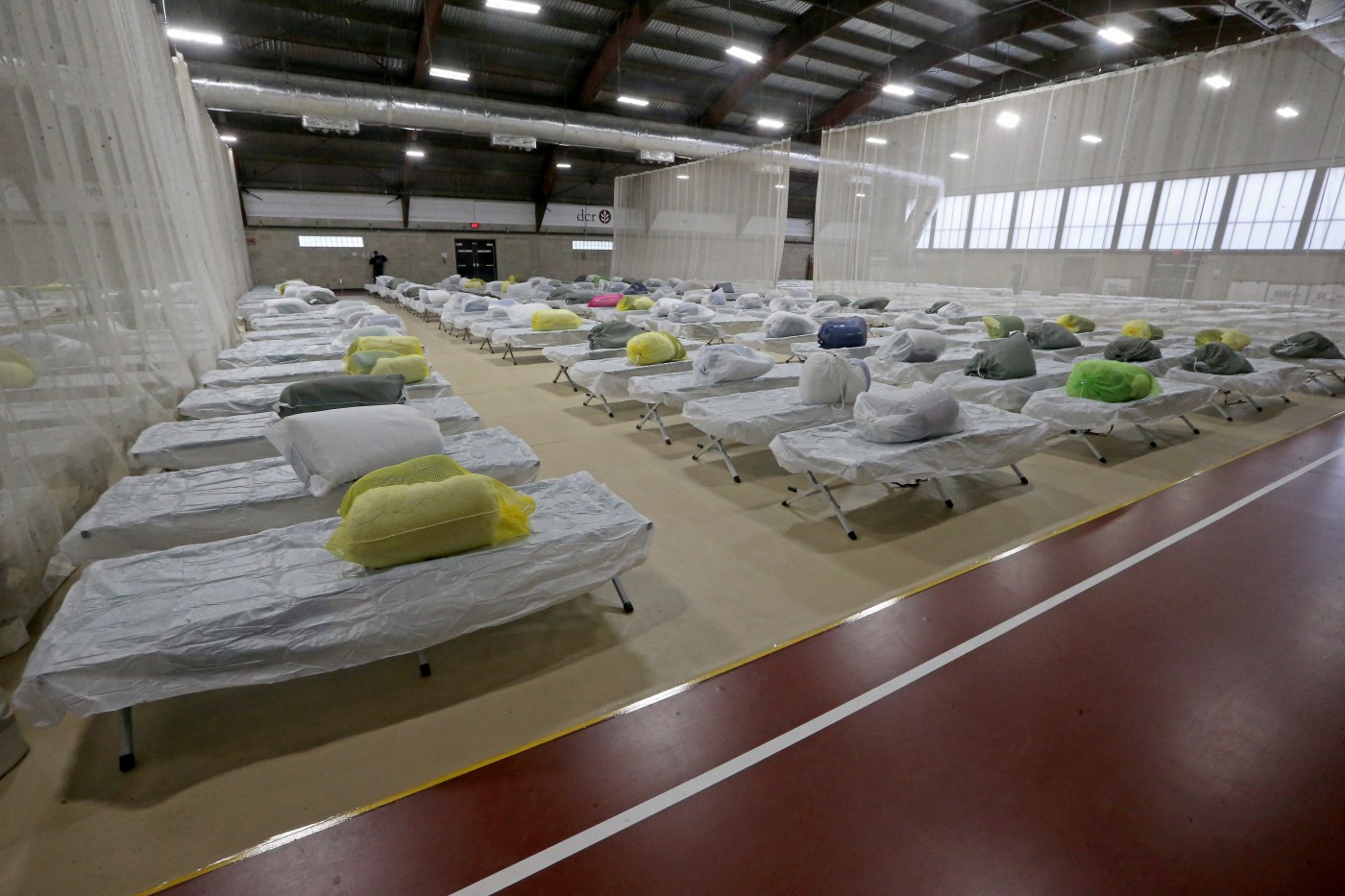
Massachusetts Republicans exploring emergency shelter ballot question for 2026 election
Massachusetts Republicans are having early conversations about advancing a ballot question for the 2026 election that would attempt to codify into state law a series of restrictions Gov. Maura Healey has placed on the emergency shelter system, lawmakers and party officials told the Herald.
The effort, the success of which may depend on who wins the presidential election in November, could formalize later this year or in early 2025 after focus shifts away from the contest for the White House and the Massachusetts gubernatorial race starts to take shape, those involved in the preliminary discussions said.
Sen. Ryan Fattman, a Sutton Republican, said a proposal taking aim at state-run shelters housing thousands of local and migrant families would help Massachusetts control the staggering cost of running the system and get the state to a point “where we start saving money.”
The five-term lawmaker said he is willing to file the necessary paperwork for the ballot question and argued cementing the restrictions should be coupled with a “real residency requirement” that bars individuals from accessing emergency services until they have lived in the state for a certain amount of time.
“Putting that directly to the people, I think, would be a very successful proposition because it would not say repeal (right-to-shelter), it would say there’s a priority to our residents, pretty much exclusively,” Fattman said in an interview.
Officials at the Massachusetts Republican Party are also involved in the conversations, said MassGOP Chair Amy Carnevale.
“It’s still early in the process but the idea of a ballot initiative is something that we have discussed,” she told the Herald. “I think at this point, given the financial ramifications of the shelter system and the migrant crisis, all cards are on the table. It’s certainly something that we’re actively talking about and considering.”
As the cost to run taxpayer-funded shelters exploded over the past year amid an influx of migrants, Healey incrementally put more limitations on how and who can access state-run shelters and for how long, some of which survived court challenges.
That includes limiting stays to nine months and capping the system at 7,500 families.
The governor also barred families with children and pregnant women from being placed on the contact list for temporary housing for six months if they choose to stay at an overflow site.
In another controversial decision, Healey limited families’ time in overflow shelters to five days — though there are several opportunities for extensions — a move that was met with pushback from advocates who argued people could end up sleeping outside.
A spokesperson for Healey declined to comment on the potential ballot question.
Massachusetts Coalition for the Homeless Associate Director Kelly Turley said she would oppose a ballot question that seeks to make Healey’s shelter constraints permanent.
“We would hope that Bay State voters would reject any attempts to weaken this landmark right to shelter (law) and to continue to support those positive efforts to make sure that children and families and all populations in Massachusetts have not only access to shelter but access to longer-term housing,” Turley said.
Related Articles
Cape Cod town’s fight over shelter project with Massachusetts housing attorney escalates
MassGOP calls on Bill Galvin to release unredacted emergency shelter records as acting governor
Hundreds of Stoughton students without bus service, as Massachusetts funds buses for migrants
Boston ICE busts two border-crossers on rape charges; pregnant woman one of the alleged victims
Healey administration used taxpayer-funded credit cards to spend millions on state-run shelter system
Massachusetts taxpayers are expected to shell out more than $1 billion in fiscal year 2025 and each of the next fiscal years to pay for the emergency shelter system and its associated services.
Healey is expected to push Beacon Hill Democrats to allow her to drain the rest of a one-time account filled with money leftover from the pandemic to cover the remaining cost of the shelter system this fiscal year.
Once those dollars are gone, some top legislators have warned budget cuts could be necessary in order to absorb the price of the shelter system into the general budget.
Sen. Peter Durant, a Spencer Republican, said writing Healey’s shelter restrictions into state law, including through a ballot question, would be a “good first step” at reining in spending, especially in the face of predictions that state revenues could be less than ideal this fiscal year.
“I think that codifying some of the restrictions that she has put in place is a good idea, but it’s also just the first step. I think there are other things we need to do,” he told the Herald. “It’s one of those things where I think a lot more needs to be done but you got to start somewhere.”
Organizations or advocates who are serious about pushing forward a ballot question in 2026 will likely wait to submit official paperwork with Secretary of State William Galvin’s office until next year.
But political operatives and elected officials could start to coalesce around the idea after the presidential election.
Fattman, who said he’s willing to file the necessary paperwork for a potential ballot question, argued public polling has shown people are supportive of Massachusetts’ right-to-shelter law, a decades-old statute that guarantees temporary housing for pregnant women and families with children.
A CommonWealthBeacon and GBH News poll of more than 1,000 residents conducted by the MassINC Polling Group in March found that 21% thought immigration was the single biggest issue facing officials in state government.
Another 47% said they “strongly support” the state’s right-to-shelter law, the poll found.
Even with public backing of Massachusetts’ right to shelter, state-run shelters need to be sustainable, Fattman said.
“That is the niche in which people look at that and they say, ‘Hm, I think there needs to be reform, and I think there needs to be some restrictions here,’ ” Fattman said. “I’ve been floating the idea to a lot of people. There’s been a lot of elected Republicans talking about it, a lot of Republican Party activists and as a Republican state senator, I’ve been talking with my colleagues about it.”


